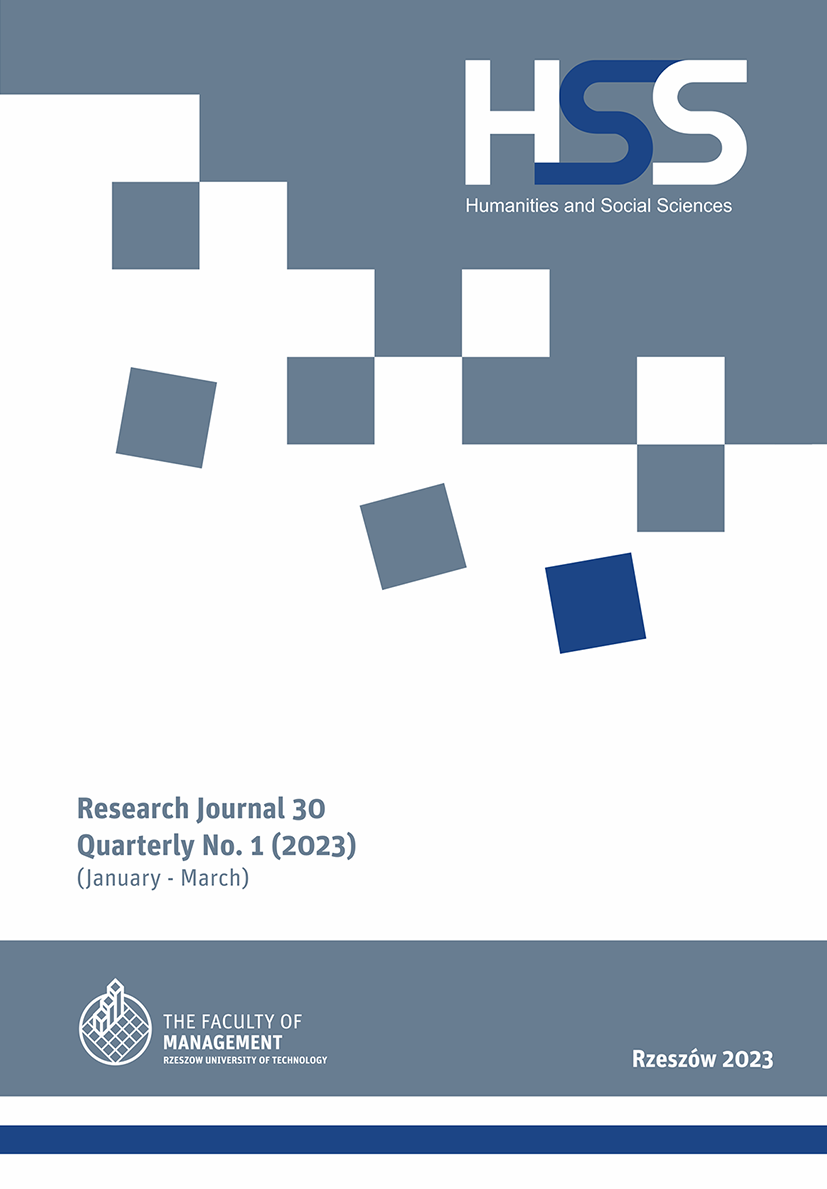Abstrakt
The present study was initiated to verify whether a curriculum enhanced with efficacy-building techniques might foster students’ adaptation to an online study environment during the COVID-19 pandemic. Inductive thematic analysis was applied to analyze interview data obtained from 32 sophomores pursuing a degree in English as a Foreign Language. Three main themes were identified: students voiced their concerns regarding the lack of online literacy, symptoms of cognitive overload, and the absence of meaningful relationships. The planned intervention partially facilitated the students’ transition process: growing efficacy among the sample was linked to more proper attribution, less negative affect, and the development of individual and shared regulation mechanisms.
Bibliografia
Aguilera-Hermida, A. (2020). College students’ use and acceptance of emergency online learning due to COVID-19. “International Journal of Educational Research Open”, 1. DOI: 10.1016/j.ijedro.2020.100011.
Alemany-Arrebola, I., Rojas-Ruiz, G., Granda-Vera, J., Mingorance-Estrada, A. (2020). Influence of COVID-19 on the perception of academic self-efficacy, state anxiety, and trait anxiety in college students. “Frontiers in Psychology”, 11. DOI: 10.3389/fpsyg.2020.570017.
Bateman, H. (2002). Students’ sense of community: Implications for class size [In:] Finn, J., Wang, M., eds., Taking small classes one step further. Philadelphia, PA: Laboratory for Student Success.
Besser, A., Flett, G., Zeigler-Hill, V. (2020). Adaptability to a sudden transition to online learning during the COVID-19 pandemic: Understanding the challenges for students. “Scholarship of Teaching and Learning in Psychology”, 8(2). DOI: 10.1037/stl0000198.
Besser, A., Flett, G., Nepon, T., Zeigler-Hill, V. (2022). Personality, cognition, and adaptability to the COVID-19 pandemic: Associations with loneliness, distress, and positive and negative mood states. “International Journal of Mental Health and Addiction”, 20(2). DOI: 10.1007/s11469-020-00421-x.
Biedroń, M., Mitręga, A., Wawrzak-Chodaczek, M. (2021). Remote learning during the COVID-19 pandemic in the opinion of Polish university students. “The New Educational Review”, 64(2). DOI: 10.15804/tner.21.64.2.10.
Braun, V., Clarke, V. (2007). Using thematic analysis in psychology. “Qualitative Research in Psychology”, 3. DOI: 10.1191/1478088706qp063oa
Collie, R., Holliman, A., Martin, A. (2017). Adaptability, engagement and academic achievement at university. “Educational Psychology”, 37(5). DOI: 10.1080/01443410.2016.1231296.
Holliman, A., Waldeck, D., Jay, B., Murphy, S., Atkinson, E., Collie, R., Martin, A. (2021). Adaptability and social support: Examining links with psychological wellbeing among UK students and non-students. “Frontiers in Psychology”, 12. DOI: 10.3389/fpsyg.2021.636520.
Ishimaru, D., Adachi, H., Nagahara, H., Shirai, S., Takemura, H., Takemura, N., Mehrasa, A., Higashino, T., Yagi, Y., Ikeda, M. (2021). Characteristics of adaptation in undergraduate university students suddenly exposed to fully online education during the COVID-19 pandemic. “Frontiers in Psychiatry”, 12. DOI: 10.3389/fpsyt.2021.731137.
Korthagen, F., Attema-Noordewier, S., Zwart, R. (2014). Teacher-student contact: Exploring a basic but complicated concept. “Teaching and Teacher Education”, 40. DOI: 10.1016/j.tate.2014.01.006
Martin, A., Nejad, H., Colmar, S., Liem, G. (2013). Adaptability: How students’ responses to uncertainty and novelty predict their academic and non- academic outcomes. “Journal of Educational Psychology”, 105. DOI: 10.1037%2Fa0032794.
Martin, A., Collie, R., Nagy, R. (2021). Adaptability and high school students’ online learning during COVID-19: A job demands-resources perspective. “Frontiers in Psychology”, 12. DOI: 10.3389/fpsyg.2021.702163.
Nowell, L., Norris, J., White, D., Moules, N. (2017). Thematic analysis: Striving to meet the trustworthiness criteria. “The International Journal of Qualitative Methods”, 16. DOI: 10.1177/1609406917733847.
Talsma, K., Robertson, K., Thomas, C., Norris, K. (2021). COVID-19 beliefs, self-efficacy and academic performance in first-year university students: Cohort comparison and mediation analysis. “Frontiers in Psychology”, 12. DOI: 10.3389/fpsyg.2021.643408.
Tannert, S., Grőschner, A. (2021). Joy of distance learning? How student self-efficacy and emotions relate to social support and school environment. “European Educational Research Journal”, 20. DOI: 10.1177/14749041211024784.
Usher, E., Pajares, F. (2008). Self-efficacy for self-regulated learning. A validation study. “Educational and Psychological Measurement”, 68. DOI: 10.1177/001316440730847.5.
Winne, P., Hadwin, A. (2008). The weave of motivation and self-regulated learning [In:] Schunk, D., Zimmerman, B., eds., Motivation and self-regulated learning: Theory, research, and application. Routledge.
Zhang, K., Wu, S., Xu, Y., Cao, W., Goetz, T., Parks-Stamm, E. (2021). Adaptability promotes student engagement under COVID-19: The multiple mediating effects of academic emotion. “Frontiers in Psychology”, 11. DOI: 10.3389/fpsyg.2020.633265.


